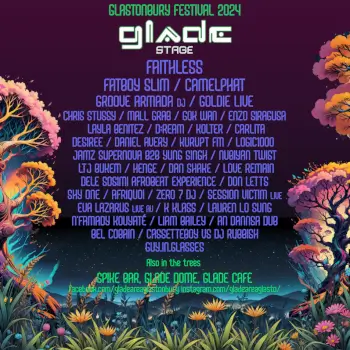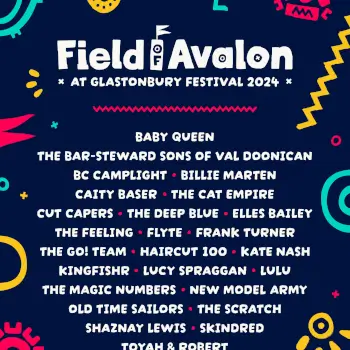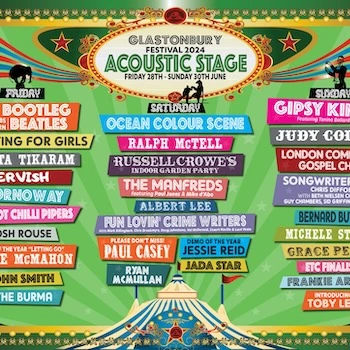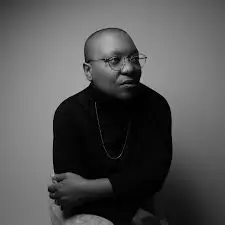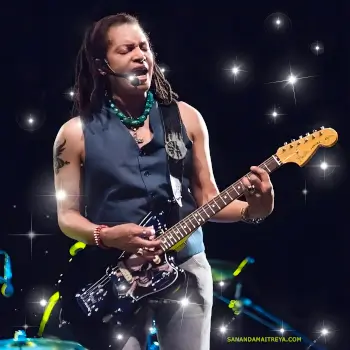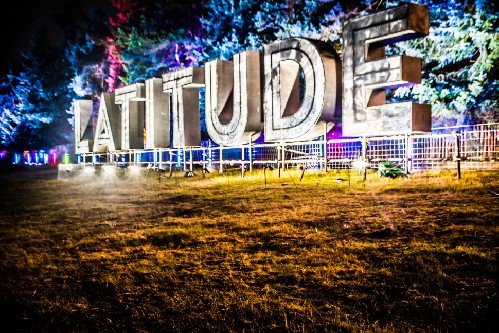
Latitude 2017
Thursday 13th to Sunday 16th July 2017Henham Park Estate, Beccles, Suffolk, NR34 8AN, England MAP
£197.50 weekend adult ticket, plus booking fees
Latitude’s reputation for attracting a posh crowd is not entirely without foundation – I heard accents at the festival that could cut glass – but its demographics are far broader than critics would have you believe. While the monied folk of the Home Counties certainly make an appearance, they are greatly outnumbered by an unusually high number of locals attending a festival they consider very much their own. All of which make for an easy going collegiate atmosphere that may not match the casual bonhomie of Glastonbury, a festival with which Latitude is often compared, but is undisputedly civilised and almost heroically good mannered. The festival has a quiet reserve (albeit one that can be enflamed with righteous indignation by queue jumpers and talking in the theatre tent) that can take a while to ease into, but allow yourself to be seduced by its discreet charms, and you will be rewarded by a truly unique festival experience.
Here are three things that set Latitude apart – its organisation, its presentation and its content.
Founder Melvin Benn cut his festival teeth at Reading in the eighties, and the lessons learned over the years are evident around every corner. Traffic management, security management, wristband collection, a spacious campsite and spotless toilets may all sound a little dull, but they are the things he has nailed. If you’ve ever experienced anything like the opposite, you know how much good organisation and a sound infrastructure contributes to a stress free festival.
Henham Park is a naturally beautiful setting, and much care and attention was given over to enhancing that look. Apart from the ubiquitous festival flags, there are all manner of decorative whimsy on show – from the extraordinary projected fountain in the lake to the famous pink sheep, none of it is really necessary, but of all of it is charming. With myriad stages cleverly grouped around the central lake, nowhere is far from anywhere else, which given the variety of stuff to do, is just as well.
Six music venues compete with proper theatre, top flight comedy, cineaste levels of film chatter, spoken word, performance poetry, and quite the naughtiest cabaret you’re ever likely to come across. No other festival serves those seeking something other than music as well as Latitude. Given its relatively modest size that’s quietly remarkable.
So if everything is so rosy, why was the prevailing mood this year, at least from the regulars, one of grumbling discontent? Perhaps because, in that age old expression beloved of festival goers since they began, it simply wasn’t as good as it used to be.
Much has been made of the decision to hand over curation of the Saturday to headliners Mumford and Sons, something which admittedly led to a day of dreary homogeneity (more of that later) but equally corrosive was the very obvious cheese paring across the site. Latitude has been cutting back for years - the full evening programme on Thursday and the Sunday lunchtime headliner are both now distant memories – but this year the savings were brutal, and very quickly impacted on the entertainment.
On Friday morning, Daniel Bye’s intriguing Border Crossing was clearly intended for Little Theatre, while Luke Wright’s excellent Frankie Vah should have been in the poetry tent. But there was no Little Theatre, and there was no poetry tent, so both had to make do with the oversubscribed Speakeasy, an all-purpose venue for those wanting something other than music to start off their festival. How galling it must have been for Wright, who so brilliantly curated the poetry tent for all previous Latitudes, to see its footprint taken up with the Danish Quarter, a hideous decked area flogging tins of Carlsberg. Latitude has never been adverse to a bit of branding, and done with care it can be a benign way to subsidence the ticket price, but add this monstrosity to the grotesque Waitrose restaurant and the Smirnoff dance area, and it really felt like the festival was starting to lose its way.
Fortunately, the strength of Friday’s offering was such that is was easy to turn a blind eye to such things. Comedy is always a draw at Latitude, and supported by a personable Susan Calham talking about cats, Dara Ó Briain was on top form, particularly when he departed from his prepared material to riff with the audience. Judging by the knowing nods of that audience, he wasn’t the only one to find surprising The 1975’s rise to headline status, but thankfully the stunning Sunrise stage came to the rescue. Nestled deep within a woodland setting, it was host to a seamless blend of experimental, multi-media laptop fun from Forest Swords and Max Cooper, followed by the inestimable rhythms of BEAK>, and topped off by an almost hallucinogenic DJ set from Simian Mobile Disco stretching out into the small hours.
And so came Saturday, and the elephant in the field, the Mumford and Sons takeover. Depending on your perspective, the redressing of the arena with the Gentlemen on the Road livery was either impressive or irritating, but one can’t deny the thorough efficiency with which it was done. Every banner, every flag, and every main stage act had Mumford’s fingerprints all over it, for which those acts thanked Mumford profusely. In my view, it all became very tiresome, very quickly, and I was grateful there were other pleasures to be had. Reginald D Hunter gave a comedy master class despite being strapped into a wheelchair with a broken leg. Mark Kermode was a clubbable as ever, chatting first to director Amma Asante, and then to Latitude regulars David Morrissey and Richard Curtis. There was even a pretty good play about cyber terrorism, albeit bizarrely shoe horned into the Cabaret tent. Notwithstanding these minor gems, however, it really felt like everyone was holding their breath, waiting for the Mumfords.
Now there was nothing wrong with Mumford and Sons headlining. They drew a huge audience and good luck to those who enjoyed their set. But overall the takeover will surely, in hindsight, be seen as a woeful miscalculation by Festival Republic. It is a simple matter of logic that anyone that doesn’t like their music is unlikely to be enthused by their choice of other acts, and no one seemed happy with the decision to close the second stage during their performance. It caused unnecessary crowding in the arena and even less choice for those of us not of the Mumford faith. As great herds of discontented punters roamed the site looking for something to see or do I wandered up into the woods in search of something weird in the Lavish Lounge. Alas, Radio 3 sponsored Late Junction appeared to be another victim of the cuts, for it was no more, so I ended up witnessing Keith Allen playing the bongos. He’s a fine bongo player, no doubt, but not what I expected to watch during a headline slot.
In fairness, Sunday revellers emerged from their Mumford hangover relatively unscathed. The banners and flags had disappeared as quickly, and as mysteriously, as they appeared. The main stage saw a resounding return to form – Public Service Broadcasting, Divine Comedy, John Cale and the Fleet Foxes all delivered what was expected of them - presenting just the sort of diverse program a festival demands. Unfortunately, they did so to a pitifully small audience, exposing just how much emphasis had been placed on the success of the day before. Long before an absolutely rammed DJ set from Fatboy Slim, the day had started to feel like a party that was prematurely winding down.
But here’s the thing. While this year’s festival was undoubtedly not the best, that’s only because it has been so good in the past. It was still fun, civilised, good natured, varied and easy going, and I’ll still be going next year, if more in hope than expectation. Latitude just has to decide what sort of festival it is. If the USP of arts and culture doesn’t pay the bills, then I can understand the urge to change and adapt, but if needs be then do it with a resolute strategy and a clear objective. This year’s festival was neither one thing or another - propped up by Mumford fans that won’t be coming back and loyal regulars that now feel mildly taken for granted, it felt like an event with very unstable foundations.
It will be fascinating to see whether Festival Republic tries to build on those foundations or return to its roots. However they decide to tackle the challenge of keeping the festival afloat, they need to take care they don’t alienate the old crowd quicker than they bring in the new.
Latest Updates
 Latitude 2024
Latitude 2024festival details
 Latitude 2024
Latitude 2024line-ups & rumours
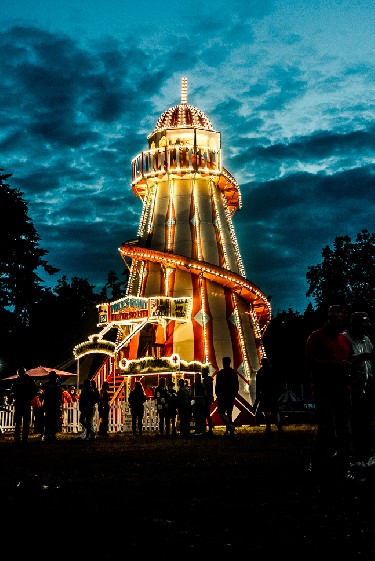 Latitude 2024 Announces First Wave Of Acts
Latitude 2024 Announces First Wave Of ActsDuran Duran joined by Kasabian, Keane, London Grammar, Rag N Bone Man and many more
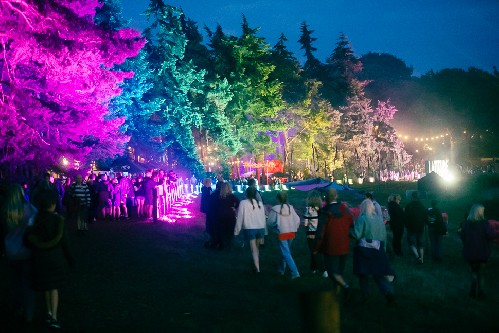 Latitude Festival 2023 - The Review
Latitude Festival 2023 - The ReviewLatitude Focuses on Family Fun
 Latitude 2023
Latitude 2023line-ups & rumours

